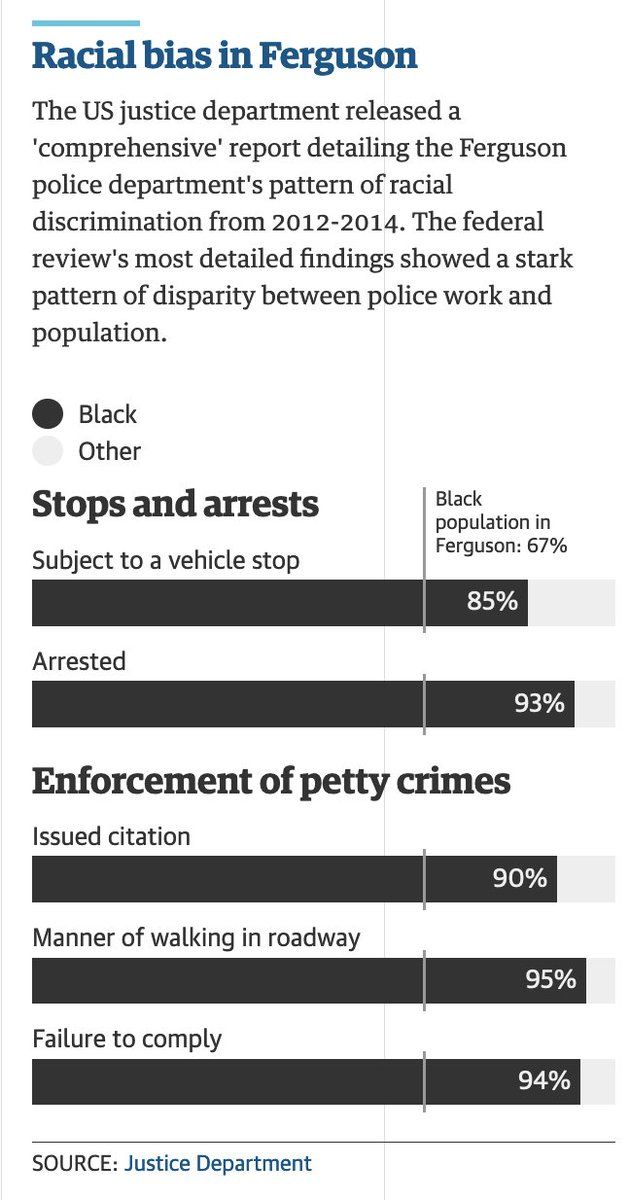-
This is a stunning map, particularly when overlaid with share of Black residents. @nytimes/1454876623392628739
-
As this reply tweet observed. @realLexPowell/1454877626363875333 Conceptually, we're talking about places where lawbreakers are taxed in lieu of residents. Where there's a disjuncture btw who lives somewhere and/or who is on the police force vs. who is pulled over, $ is redistributed.
-
One underlying pattern: highway speed traps, including in my home metropolis in northeast Ohio. @nytimes/1454877854571847682
-
There too, these maneuvers can tax Black speeders in lieu of white residents. @nytimes/1454878361474539530
-
This was a core issue in Ferguson, Missouri, where 67% of residents are Black, but just 6% of police in 2014, when police killed Mike Brown, starting an uprising. Petty fines, generated by racially biased stops, were effectively a tax on Black residents. theguardian.com/us-news/2015/mar/04/ferguson-police-racial-persecution-federal-report
-
Black residents of Missouri were 85% more likely to be stopped by police. The NAACP issued a travel advisory warning Black drivers "are traveling and living in Missouri at their own risk and subject to unnecessary search, seizure and potential arrest." theguardian.com/us-news/2018/jul/05/missouri-driving-while-black-st-louis
-
In response to protest and criticism, Missouri capped city revenue from fines at 20%, and at 12.5% in the county containing Ferguson and St. Louis. The latter cap was invalidated by the Missouri Supreme Court. news.stlpublicradio.org/government-politics-issues/2021-10-09/missouri-supreme-court-hears-arguments-over-a-2015-law-to-cap-revenue-from-court-fines
